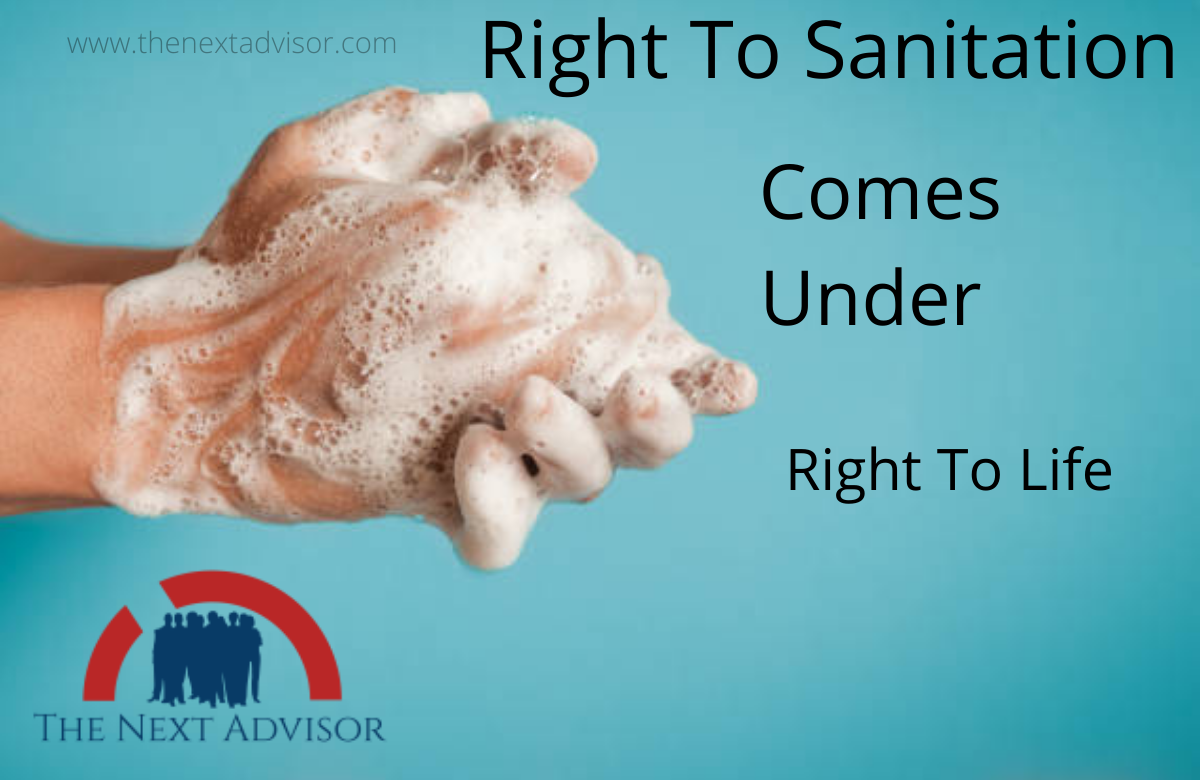Right to Sanitation Falls under Right to Life
● ” Bare necessities of life include proper sanitation facilities as the practice of open defecation or a life with polluted drinking water source and environment cannot be considered as a life of dignity as understood in the context of Right to life under the constitution …
●…. State is under obligation to provide basic amenities to the citizens on the Highways while ensuring that their right to sanitation (Right to Sanitation comes under Right to Life) / basic amenities is not defeated.
Court also Observed in the Right To Sanitation Comes Under the Right To Life explained below
•, Unlike women, men shamelessly stand on the Highways to ease off themselves, but a society cannot expect the same from the former and therefore it is an urgent duty upon the State / its instrumentalities to ensure that such needs, which are the very definition of basic needs, are met.
• How would a lactating mother traveling from Kishanganj ( farthest District from the capital city of Bihar ) to Patna ( capital city ) feed an infant or ease off herself without any such facilities available on the Highways?
• It is so unfortunate that in the land of Dr. Bindeshwar Pathak, who revolutionized the public health, hygiene, and sanitation concept in India by establishing Sulabh Sauchayalas throughout the country that public toilets and proper sanitation facilities are nowhere to be seen.
RIGHT TO SANITATION (Right To Sanitation Comes Under Right To Life)
● Sanitation is personal and private, inextricably linked to human dignity.
• sanitation has an essential public health dimension
• Inadequate sanitation leads to contamination of the environment, public spaces, and water bodies through feces and wastewater.
CONSTITUTIONAL MANDATE: – SANITATION
• The Constitution envisages the establishment of a welfare State at the federal level and at the state level, where the primary duty of the Government is to secure the welfare of the people.
• The right to live with human dignity enshrined in Article 21 derives its life breath from the Directive Principles of State Policy and particularly clauses ( e ) and ( f ) of Article 39 and Articles 41 and 42, it must include protection of the health and strength of the workers, men, and women, and of the tender age of children against abuse, opportunities and facilities for children to develop in a healthy manner and in conditions of freedom and dignity, educational facilities, just and humane conditions of work and maternity relief. – Bandhua Mukti Morcha vs. Union of India & others.
• Article 39. Certain principles of the policy are to be followed by the State. – The State shall, in particular, direct its policy towards securing
• Article 39 ( e ) that the health and strength of workers, men, and women, and the tender age of children are not abused and that citizens are not forced by economic necessity to enter avocations unsuited to their age or strength
• Article 39 ( f ) that children are given opportunities and facilities to develop in a healthy manner and in conditions of freedom and dignity and that childhood and youth are protected against exploitation and against moral and material abandonment.
• Article 41. Right to work, education, and public assistance in certain cases.
• Article 42. Provision for just and humane conditions of work and maternity relief.
• ” Article 47 further imposes the duty on the State to improve public health as its primary duty.
• Article 51 – A ( g ) imposes ” a fundamental duty ” on every citizen of India to protect and improve the natural ” environment ” including forests, lakes, rivers, and wildlife, and to have ” compassion for living creatures. “
INTERNATIONAL LAW ON SANITATION
● Access to safe drinking water and adequate sanitation is now firmly recognized as a human right.
• Target 6.2 under Sustainable Development Goal No.6 reads as under :
• ” By 2030, achieve access to adequate and equitable sanitation and hygiene for all and end open defecation, paying special attention to the needs of women and girls and those in vulnerable situations “.
• On lack of Filling Stations on State, HC said • The equitable distribution of essential commodities, such as petroleum, is a positive obligation on the State, and must continually take steps to ensure that this obligation is met. Numerous benefits accrue when the same is fulfilled.
• (Article 39 is connected to this matter deeply) 39. Certain principles of the policy are to be followed by the State. – The State shall, in particular, direct its policy towards securing
•Article 39 ( b ) that the ownership and control of the material resources of the community are so distributed as best to subserve the common good.
• If Well planned interspersing of petrol pumps achieves
• ( a ) reduction of unnecessary travel for refueling purposes ;
• ( b ) reduction in pollution and the wastage of petroleum ;
• ( c ) reduced demand due to more efficient uses leads to a reduction in imports over a period of time;
• ( d ) generation of employment in the locality of the unit ;
• ( e ) ease of availability contributes to checking the issue of black marketing of motor spirit ;
• ( f ) preventing the open sale of the product in bottles dangling from a pole.



























